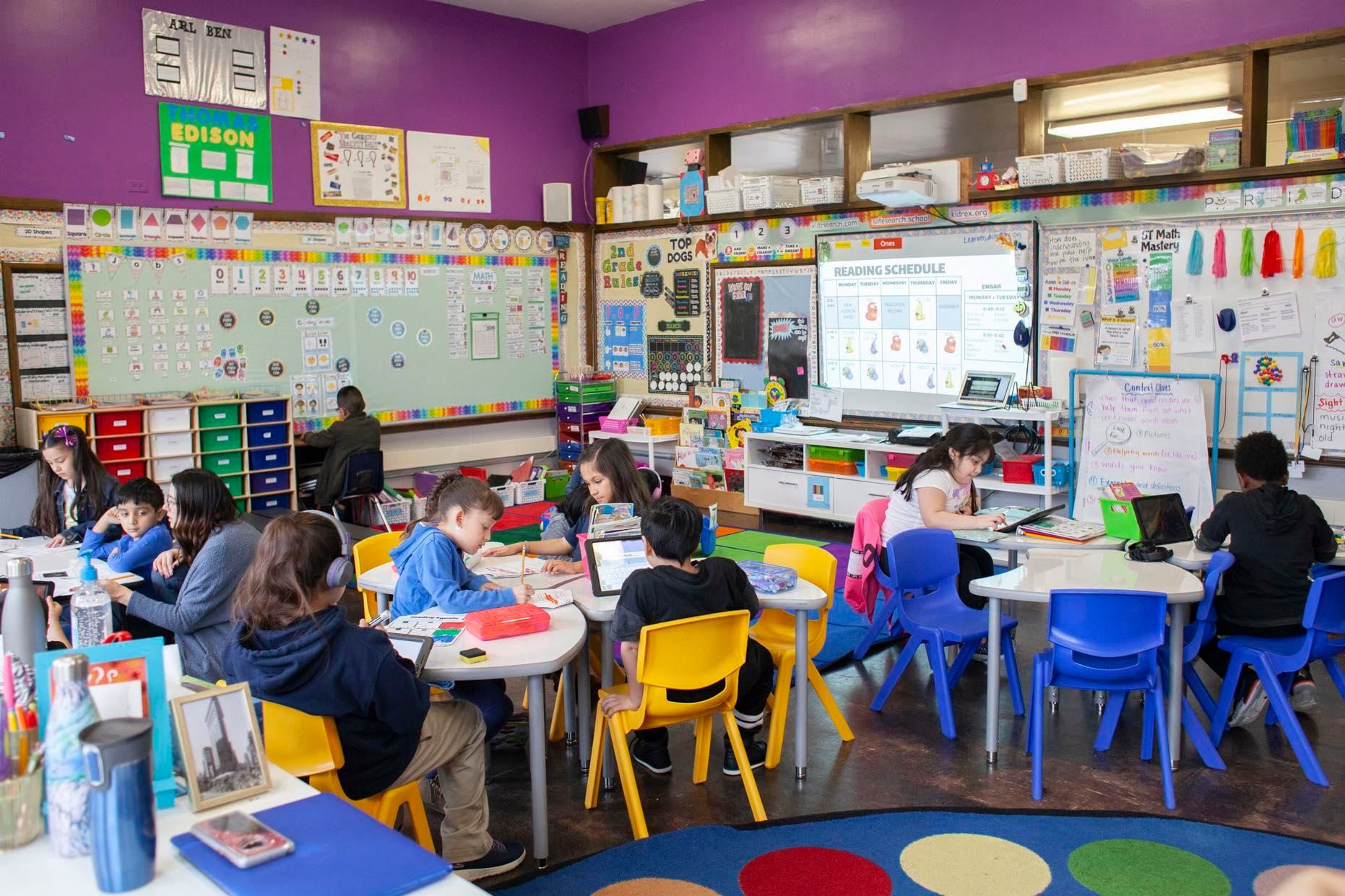Illinois education advocates say that the next generations of public school students will continue to attend under-resourced schools if the state doesn’t increase funding by about $1.5 billion a year for the next five years to fully fund schools by 2027.
The Partnership for Equity and Education Rights Illinois — a new coalition of several education advocacy programs — and the Education Law Center said in a press release that they found that 1.7 million students from 83% of Illinois school districts still attend an underfunded school. By only placing $350 million into the state’s evidence-based funding formula – the minimum amount recommended by law – the state will not be able to fully fund school districts by 2027, a new report from the advocacy groups found.
At a press conference on Tuesday, ahead of budget hearings the Illinois Board of Education is set to start holding next week, the advocates urged state officials to increase funding for the next school year.
Naoma Nagahawatte, advocacy director for Raise Your Hand Illinois and a Chicago parent, said time is running out to fully fund schools to ensure that students who go to schools with a higher concentration of poverty can receive the same education as students in wealthier districts.
“Generations of future Illinois students in low-wealth districts will continue to seek significantly less funding and resources for their education,” said Nagahawatte, “while districts like Dolton-Riverdale will continue to unfairly more in local property taxes to make up the money that the state of Illinois is obligated to put into their school districts.”
When the state legislature created the evidence-based funding formula in 2017, it intended for schools to be fully funded by 2027, with at least $350 million added to the formula every year. However, there was no new funding for 2021 – a fallout from the financial hit the pandemic delivered to the state. The state board of education recommended adding more than $350 million into the evidence-based funding formula for fiscal years 2022 and 2023, but legislators stuck with the $350 million minimum outlined in the law.
At the end of the legislative session in April, state lawmakers approved $350 million more for the funding formula, which is now at $7.9 billion. The state’s overall education budget is about $9.7 billion. Under the increase sought by the advocates, the evidence-based funding formula would be over $15 billion by 2027.
Sincereuray Gordon, whose children attend Zion District 6 in a North Chicago suburb, said children with disabilities are also impacted by inadequate funding. In Zion, students often have to be relocated or bused to another school to be provided services, but spots are limited.
“I think every child has the right to proper resources and services in the school building that they are in as opposed to having to relocate,” Gordon said at the press conference.
In Chicago, where schools are funded based on enrollment, programs have been cut despite getting additional state money, said Brenda Delgado, a member of the Brighton Park Neighborhood Council and a Chicago parent. Chicago lost about 25,000 students during the height of the pandemic.
“My children are students at a school that received a lot of cuts due to student-based budgeting. That’s not fair,” said Delgado. “Our kids deserve to have a library in their schools. They deserve counselors and nurses. They deserve programs.”
Partnership for Equity and Education Rights Illinois wants state legislators to be required to put more than $350 million additional money into the state’s funding formula and to ensure that school districts steer the money directly to public school classrooms and students, Nagahawatte said.
Education advocates throughout the state have raised concerns that the minimum will not be enough with rising costs and a 40-year high inflation rate. However, even as Illinois’ finances are starting to rebound, neither the governor or legislature have indicated they will add more to the funding formula.
The state’s professional review board released a report last year noting that full funding would not happen until 2042 if the state continues to increase the funding by the $350 million minimum.
A spokesperson for Gov. J.B. Pritzker said the governor understands more work needs to be done to increase funding for schools around the state.
“The administration remains committed to working with our partners in the legislature to expand evidence-based funding levels and provide schools throughout the state with the resources necessary to thrive,” Pritzker’s office said in a statement.
The state board of education will hold virtual and in person hearings throughout the month of October. Virtual hearings will take place on Tuesday, Oct. 4 and Monday, Oct. 24 at 4 p.m. An in-person hearing will take place in Springfield on Thursday, Oct. 6 at 4 p.m.
Samantha Smylie is the state education reporter for Chalkbeat Chicago, covering school districts across the state, legislation, special education, and the state board of education. Contact Samantha at ssmylie@chalkbeat.org.





